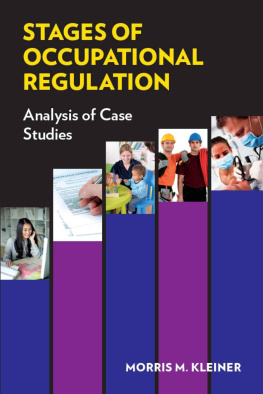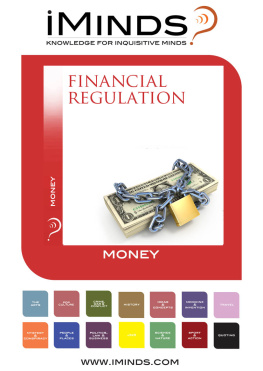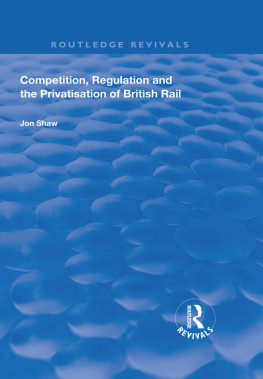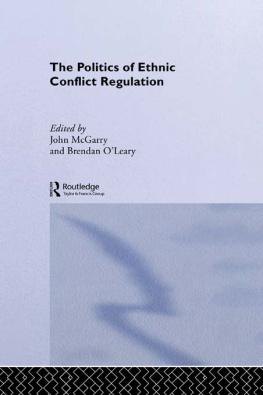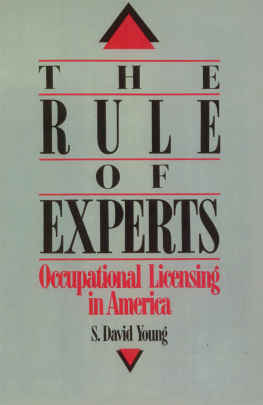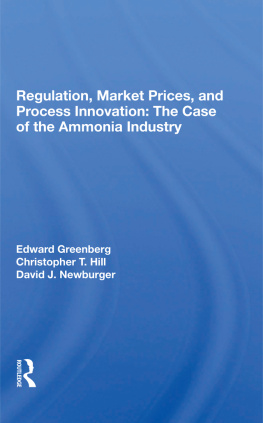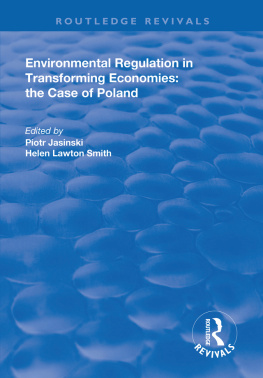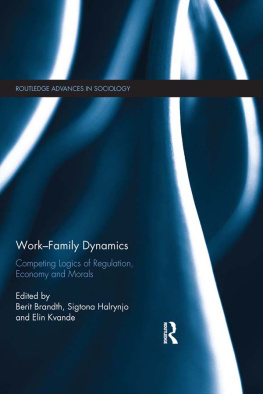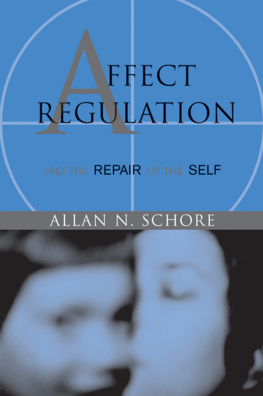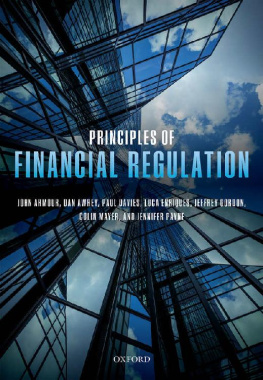
Occupational licensure as an interference in free markets gets less attention than its importance for both good and ill warrants. Morris Kleiner is our foremost expert on this important topic, and this book shares what he has learned. Whatever your policy instincts, this book provides important new insights. It is a great and valuable accomplishment.
Lawrence Summers, Charles W. Eliot University Professor at Harvard University
Morris Kleiner is the leading expert in the nation, and perhaps the world, on the causes and effects of occupational licensing. His book Stages of Occupational Regulation presents five case studies of occupationsinterior designers, mortgage brokers, preschool teachers, electricians and plumbers, and dentists and hygieniststhat are at different stages of government regulation, and then uses these case studies to provide new insights as to how regulation affects practitioners, consumers, and the public at large. His focus throughout is on the efficiency and equity impacts of regulation, and this very interesting, carefully researched, and well-written book will provide readers with a new appreciation of the importance of occupational regulation in American society.
Ronald G. Ehrenberg, Irving M. Ives Professor of Industrial and Labor Relations and Economics, Cornell University
Stages of Occupational Regulation: Analysis of Case Studies makes a great companion to Kleiner's previous book, Licensing Occupations: Ensuring Quality or Restricting Competition? In addition to providing an excellent summary of the literature, the book presents original research examining a broad range of effects of occupational licensing regulationseffects on wages, entry into the occupation, and adverse outcomes both for consumers and for licensed professionals. The book delves into how these effects differ among occupations that are licensed in only a handful of states, those that are universally licensed, and those with licensing regimes lying somewhere in between, describing the details of the economics and public policy issues at play. Stages of Occupational Regulation also contains a wealth of ideas for future research.
Bradley Larsen, Department of Economics, Stanford University
Stages of Occupational Regulation blends detailed institutional knowledge, historical perspective, and economic analysis to present the costs and benefits of the growing rate of occupational licensing in the U.S. economy. Kleiner is a clear and engaging narrator, using occupations at various stages of licensing requirements, from mortgage brokers to dental hygienists, to illustrate the political economy of heightened regulation and to clarify who wins and who loses from the process. This book, with its wealth of real-world detail, is a welcome companion to Kleiners earlier statistical studies on occupational licensing and cements his place as the foremost expert on this important labor market institution.
Leah Boustan, Department of Economics, University of California at Los Angeles
Stages of Occupational Regulation asks searching questions concerning the use of occupational regulation as a policy lever. Where it is necessary, we are invited to consider the appropriate form that should be employed, and Professor Kleiner helpfully continues an important conversation about this oft-neglected topic.
Adam Parfitt, Executive Director, Council on Licensure, Enforcement, and Regulation (CLEAR)
Supported by cogent and persuasive historical, institutional, and quantitative analyses, Stages of Occupational Regulation: Analysis of Case Studies provides new insights into the evolution and impacts of occupational regulation on the U.S. economy.
Adriana D. Kugler, Vice-Provost for Faculty and Professor of Public Policy, Georgetown University
To paraphrase Tolstoy, all unlicensed professions are alike; each licensed profession is licensed in its own way. Morris Kleiner has shined a light on this increasingly pervasive labor market regulation with a variety of informative case studies, each of which helps us understand why professions are licensed, who is affected, and why it matters.
Charles Wheelan, Harris School of Public Policy, University of Chicago
Stages of Occupational Regulation
Analysis of Case Studies
Morris M. Kleiner
2013
W.E. Upjohn Institute for Employment Research
Kalamazoo, Michigan
Library of Congress Cataloging-in-Publication Data
Kleiner, Morris M.
Stages of occupational regulation : analysis of case studies / Morris M. Kleiner.
pages cm
Includes bibliographical references and index.
ISBN 978-0-88099-459-0 (pbk. : alk. paper) ISBN 0-88099-459-2 (pbk. : alk. paper) ISBN 978-0-88099-460-6 (hardcover : alk. paper) ISBN 0-88099-460-6
(hardcover : alk. paper)
1. OccupationsLicensesUnited States. 2. ProfessionsLicensesUnited
States. 3. Trade regulationUnited States. 4. Labor marketUnited States. I. Title.
HD3630.U7K5753 2013
331.7.10973dc23
2013031945
2013
W.E. Upjohn Institute for Employment Research
300 S. Westnedge Avenue
Kalamazoo, Michigan 49007-4686
The facts presented in this study and the observations and viewpoints expressed are the sole responsibility of the author. They do not necessarily represent positions of the W.E. Upjohn Institute for Employment Research.
Cover design by Alcorn Publication Design.
Index prepared by Diane Worden.
Printed in the United States of America.
Printed on recycled paper.
Contents
Figures
Tables
Boxes
Preface
I was left wanting more I liken it to the cliffhanger in a work of fiction; it has made me eager for the next installment.
Alice Ramey (2010), Bureau of Labor Statistics economist, in her review of Licensing Occupations: Ensuring Quality or Restricting Competition?
As this epigraph attests, I am reasonably certain that at least one reader was on the edge of her seat while turning the pages of my last book, Licensing Occupations: Ensuring Quality or Restricting Competition? , published by the W.E. Upjohn Institute for Employment Research in 2006. Occupational licensing is not a topic that often gets mentioned with the same sense of anticipation as a Robert Ludlum spellbinder or a Sherlock Holmes mystery, but I will take modest praise wherever I can find it. Therefore, to satisfy the wishes of Alice Ramey and any other readers for a follow-up work, I have written this current book.
The goal of this book is to provide new insights into how occupational regulation influences practitioners, consumers, and the public. To accomplish this goal, I provide detailed case studies of occupations at various stages of governmental regulation. The occupations selected are those of interior designers, mortgage brokers, preschool teachers, electricians and plumbers, and dentists and hygienists. Although the groups examined were not randomly selected, they reflect large occupational groups that have important economic and labor market effects.
Each chapter presents the evolution and anatomy of each profession. It asks why the occupation sought licensing or other forms of governmental regulation. Furthermore, it seeks to explain to what extent regulation has changed over time and whether there is a convergence of state regulations to a national standard. What qualitative changes have occurred within the occupation? Have individuals that have attained an occupational license gained higher wages as a consequence? Have other nonmonetary outcomes within the occupation been influenced by regulation? Have consumers been affected by regulations through changes in prices and the quality of the service? To what extent do the duration and intensity of governmental regulations influence the members of the profession?
Next page
